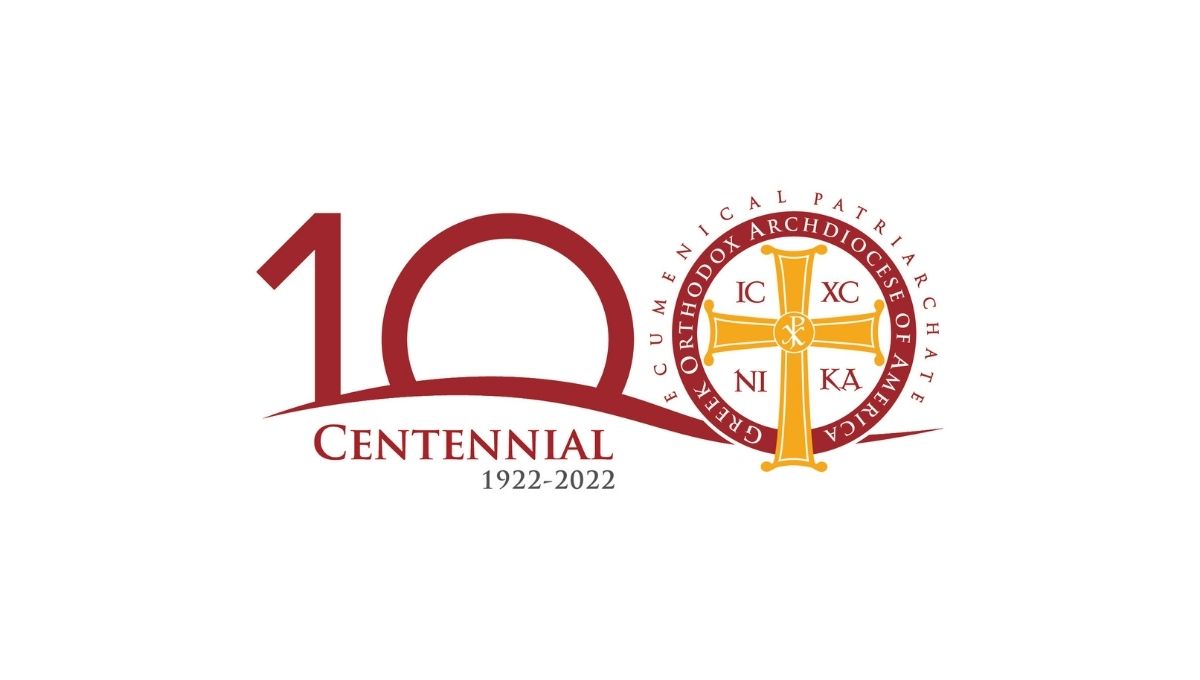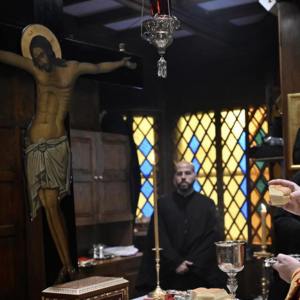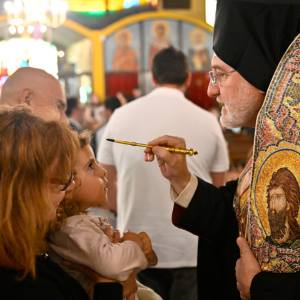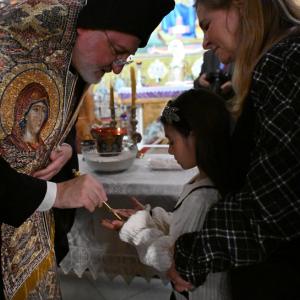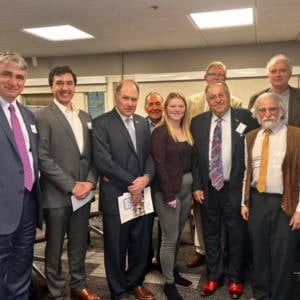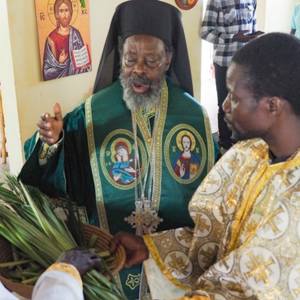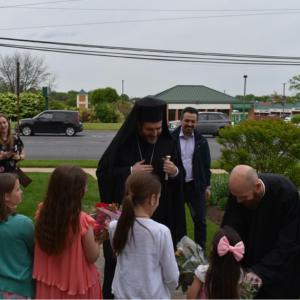Sermon by His Eminence Metropolitan Cleopas of Sweden
at the Annunciation Cathedral in Boston
Sunday, 9 October 2022
Reverend Fathers and Dearly Beloved Brethren in Christ,
Glorifying the name of the Trinitarian God, Who has enabled us to gather here together at the hallowed and magnificent Annunciation Cathedral with the same intent to glorify Him exhibited by the residents of Nain in the reading we heard today from the Gospel of Luke, I ask your indulgence to allow me to begin my address with thanks.
First, I would like to thank His Eminence Archbishop Elpidophoros of America for honoring me with an invitation to participate as a speaker in the two-day conference held on site at the Holy Cross School of Theology to commemorate the centennial anniversary of the establishment of the Greek Orthodox Archdiocese of America.
Second, I would like to thank your venerable and esteemed Spiritual Shepherd, His Eminence Metropolitan Methodios of Boston, with whose canonical permission and blessings I join you today in worship and prayer. I thank him again repeatedly because he gave me the opportunity to learn alongside him when he appointed me Dean of our Cathedral, as well as the distinction of serving as the successor to a legendary figure, the Very Rev. Archimandrite James Coucouzes, who would go on to become Archbishop Iakovos of North and South America.
The theme of my presentation at the conference was dedicated to Archbishop Iakovos’ ministry at our Cathedral. I constantly commemorate the ever-memorable Spiritual Leader of the local Church in America, inasmuch as I received a personal scholarship from him and he provided me with the opportunity to receive both a secular education, as well as theological training that enabled me to continue my ministry at the third and highest level of priesthood – the episcopacy. May his memory be eternal and never forgotten!
I thank all of you because during my years of ministry here, you entrusted me, you shared your sorrows and joys with me, and I want you to know that my time here at the Cathedral remains forever enshrined in my heart. May God bless all of you and your families!
I congratulate your new Dean, the Rev. Fr. Thomas Tsininis, on his appointment and I wish your former Dean Fr. Demetrios Tonias speedy recovery and full restoration to health.
Today, St. Luke the Evangelist presents us with an unpleasant scene – the funeral procession of a young man, who left behind his widowed mother. The residents of the city of Nain looked on as spectators and joined in the procession. They were met by Jesus and His disciples, who happened to come across the funeral procession.
When Christ performed the miracle of raising the young man from the dead, the people who witnessed the event were overcome with fear and the desire to give glory to God. They came to the conclusion that: “A great prophet has risen among us!” and “God has visited his people!”
The event of the resurrection was attributed to the presence of God. The people did not approach it as distant, indifferent onlookers. Instead, they were seized by fear and awe. Here, fear is not the usual emotion caused by some danger, but rather the result of surprise and wonder due to the amazing events that transpired.
Fear as “the beginning of wisdom” reveals the sensitivity possessed by a person of faith, because he understands the position he must adopt toward the “unfathomable and incomprehensible” will of God. This fear is not some oppressive condition imposed upon us without our volition. On the contrary, it reveals the sensitivity of the soul, which consciously recognizes God’s greatness and goodness.
For the Lord, raising this widow’s son from the dead is as easy as it is for us to wake up someone who is sleeping. In the cases of the two other persons that the Lord raised from the dead, Lazarus and the daughter of Jairus, He presents death as falling asleep. “Our friend Lazarus has fallen asleep, but I go to awake him out of sleep.” (John 11:11).
He consoled those who cried and mourned over the death of Jairus’ daughter with the words: “Do not weep, for she is not dead but sleeping” (Luke 8:52). And so, far from Christ, death is equated with the negation and ceasing of every form of life; however, with Christ, it becomes “sleep,” “transposition,” and “a departure” so that it may signify the certain hope of everlasting life.
The Serbian theologian and saint of the Church Fr. Justin Popovich notes the following: “Prior to the resurrection of Christ, death was a terrible thing for man. After the Lord’s Resurrection, man becomes a terrible thing for death. When man lives with faith in the Risen God-Man, then he lives above death. He is rendered immune to death as well. When a person dies together with Christ, he merely leaves behind the garment of his body, so that he may wear it again at the Second Coming… For us Christians, life on earth is a school, where we learn how to secure immortality and everlasting life.” (Man and the God-Man, pp. 40-41)
Reverend Fathers and Beloved Brethren,
The Lord “took mercy” upon the widow in Nain. His human nature felt sympathy for His creature, which was crushed by the pain of death and He stood as a barrier before the torrid tide of pain and death, which swept and seeps through our nature. Far from Christ, death is invincible and hopelessly exhausting. However, under the protection of His almighty hand, it is weakened and placed under the control of the faithful person. As a result, death no longer feeds man’s pain and tears, but rather it is replaced by the blessed hope of eternal life and beatitude.
The Lord gives us a foretaste of this joy, which is capable of healing our wounds, so long as we await and desire for Him to meet us at the gates of our own personal Nain. Amen!

